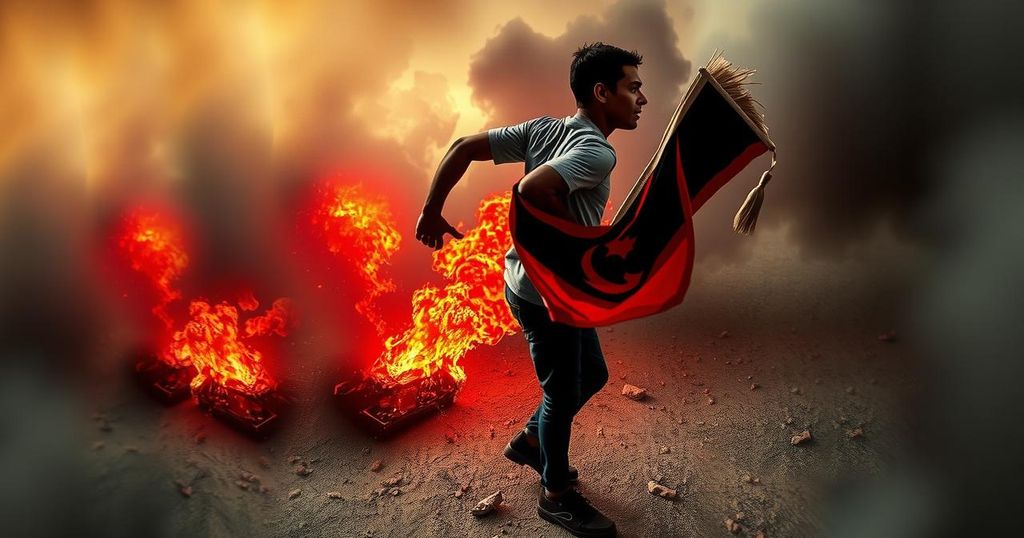The year 2024 saw a dramatic escalation of conflict in the Middle East, highlighted by Israel’s intense military operations in Gaza and Lebanon, resulting in thousands of casualties. Major geopolitical shifts included the fall of Bashar al-Assad’s regime in Syria and direct confrontations between Israel and Iran. The humanitarian crisis in Gaza has worsened, while political instability in the region continues to escalate amid rising tensions and violence.
The year 2024 has been characterized by significant escalations in armed conflict across the Middle East, following a period of relative calm. Israel’s military operations intensified in Gaza following Hamas’s attacks on October 7, 2023. The subsequent siege and relentless bombing led to catastrophic humanitarian conditions, resulting in over 45,000 casualties within Gaza, with the civilian population suffering severe shortages of food and medical supplies.
In addition to the violence in Gaza, Israel expanded its military operations into Lebanon targeting Hezbollah, marking a return to open conflict in the region. The assassination of Hezbollah leader Hassan Nasrallah and Israel’s extensive air assaults on Hezbollah positions led to significant civilian displacement and casualties. Furthermore, for the first time in two decades, Israel engaged directly with Iranian forces, with tensions culminating in various attacks and counterattacks between the two states.
In Syria, the long-standing rule of Bashar al-Assad came to a dramatic end as Turkish-backed rebels achieved significant territorial gains, culminating in Assad’s flight from the capital. The fall of Assad’s regime signifies a crucial turning point in the Syrian Civil War, which has resulted in immense loss of life since its outset in 2011.
The instability across the region highlights the interconnectedness of the ongoing conflicts and the potential for further escalations that could have lasting implications for regional stability and international relations.
The Middle East in 2024 has seen a resurgence of conflict following years of political tensions and prolonged wars. Since Hamas’s assault in October 2023, Israel has maintained aggressive military operations in Gaza while also grappling with Hezbollah’s involvement from Lebanon and Iran’s support of regional proxies. Concurrently, Syria has experienced major upheaval with the overthrow of Bashar al-Assad, contributing to the ongoing humanitarian crisis and realignment of power in the region. The Arab-Israeli conflict, which has persisted for decades, has intensified, cooking a volatile mixture of military confrontations, political maneuverings, and shifting allegiances. As global powers engage in mediation efforts, the stakes have continued to rise in a complex landscape marked by violence and suffering.
The events of 2024 underscore a year of dramatic upheaval and relentless conflict in the Middle East, anchored by intense military confrontations between Israel, Hamas, and Hezbollah, alongside Iran’s escalating involvement. The humanitarian crises in Gaza and Lebanon are severe, with flaring violence and political instability threatening the progress towards peace. The collapse of Assad’s regime in Syria marks a significant shift in the regional landscape, leaving many questions unanswered regarding future governance and stability. Effective international response and mediation will be critical to addressing the ongoing crises and fostering a durable solution for all parties involved.
Original Source: www.france24.com






